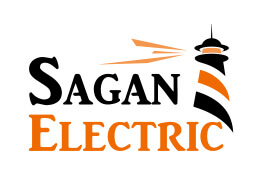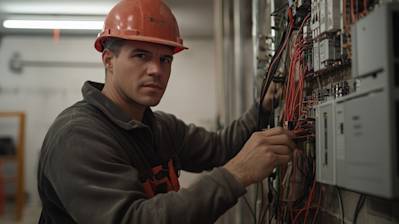As our world continues to advance, the demand for skilled professionals in various industrial sectors is steadily on the rise. At the forefront of this increased demand is the crucial role of an industrial electrician. Imagine being in a world where electricity is no longer dependable. Operations in factories would come to a halt; production lines would stop; businesses would fail; the economy would crumble. Thankfully, industrial electricians are here to ensure that doesn’t happen. They keep the world running smoothly, contributing significantly to the operation and growth of industries worldwide.
Understanding the Role of an Industrial Electrician
An industrial electrician is a skilled professional who installs, maintains, and repairs electrical systems and equipment in industrial settings. Industrial settings may include manufacturing plants, industrial factories, power stations, or petroleum refineries. Industrial electricians employ a plethora of tools and skills, providing solutions to complex industrial electrical issues and playing a pivotal role in preventing significant operational disruptions.
Key Responsibilities of an Industrial Electrician
The key responsibilities of an industrial electrician include, but are not limited to:
- Installation, maintenance, and repair of electrical systems, wiring, and industrial machinery.
- Conducting routine system evaluation checks to ensure optimal performance.
- Identifying and troubleshooting electrical problems.
- Following state and local electrical codes during installations and repairs.
The Demand for Industrial Electricians
The upsurge in urbanization, coupled with the need for constant upgrades to electrical systems in today’s technologically-driven world, has led to a substantial increase in demand for industrial electricians. This rise isn’t slated to slow down anytime soon, making 'industrial electrician' a promising career to consider.
Trends Affecting the Demand for Industrial Electricians
The demand for industrial electricians is influenced by a few key trends:
- The increase in energy-efficient technology.
- The continuous need to upgrade and maintain electrical systems in plants and factories.
- The worldwide drive towards automation in industrial processes.
Training and Certification of an Industrial Electrician
Becoming an industrial electrician involves a mix of formal education, hands-on training, and licensure. The career path typically begins with a high school diploma or equivalent, followed by enrolling in a technical school or community college.
Industrial Electrician Apprenticeship
After obtaining their diploma or degree, aspiring industrial electricians usually enter an apprenticeship program. This program allows them to gain practical, hands-on experience under the supervision of seasoned professionals while also taking classes to enhance their theoretical knowledge.
Licensing and Certification
Once their apprenticeship is complete, these professionals must pass an examination to become licensed to work independently. This process solidifies their skillset, ensuring they have the certified knowledge to safely work within the varied and complex field of industrial electricity.
Important Skills for an Industrial Electrician
There’s a range of skills that are crucial to being a capable industrial electrician, including:
- Problem-solving skills: Industrial electricians need to be able to identify, analyze, and solve electrical problems.
- Manual dexterity: Handling electrical components requires fine motor skills.
- Technical knowledge: A thorough understanding of electrical systems, blueprints, and tools of the trade.
- Communication skills: They need to liaise with other team members often, so good communication is essential.
Industrial electricians are relied upon every day to keep our industries running smoothly and efficiently. They provide an invaluable service, ensuring that factories and other industrial enterprises keep moving forward. Their varied and extensive skill set, combined with the growing demand for their services, makes this a rewarding career choice.
Frequently Asked Questions about an Industrial Electrician
What is the difference between an industrial electrician and a residential electrician?
While both industrial and residential electricians work with the installation, repair, and testing of electrical systems, the key difference lies in the type of work environments they operate within and the complexity of the systems they work on. Industrial electricians typically work in places like factories or industrial facilities where the electrical systems are much larger and complex. Residential electricians, on the other hand, work in homes and residential buildings with smaller, less complex systems.
What qualifications are required to become an industrial electrician?
To become an industrial electrician, a person must initially gain a high school diploma or equivalent. Then, he or she would have to graduate from a technical or vocational school, where they'll gain knowledge and skills related to electrical systems, safety procedures, and the application of electrical codes. The individual will then have to complete an apprenticeship program, which will provide extensive on-the-job training. After the completion of the apprenticeship, the person will need to obtain licensure or certification in the jurisdiction where they will work as an industrial electrician.
What skills should a good industrial electrician have?
An effective industrial electrician should have a thorough understanding of electrical systems and safety codes. They should be able to read and understand technical blueprints and schematics. Good problem-solving skills are critical, as they often need to troubleshoot issues and find long-term solutions. As they often work in teams, they should possess good communication and teamwork skills as well.
What kind of tasks does an industrial electrician perform on a typical day?
On a daily basis, an industrial electrician could be tasked with a variety of jobs depending on what's needed in their workplace. These tasks may include installing new electrical equipment, testing electrical components for safety and efficiency, maintaining electrical systems by regularly checking and upgrading them if necessary, and troubleshooting and repairing faulty electrical parts to ensure they're running optimally.
How much can an industrial electrician expect to earn?
The income of an industrial electrician can differ widely depending on a variety of factors such as the region, the experience level of the electrician, and the industry they are working in. On average, an industrial electrician can expect to earn a comfortable middle-class wage. For more detailed information, it's best to check the pay scale data of your specific location and field.
What are the most common industries where an industrial electrician is employed?
Industrial electricians can find employment in a range of industries due to the broad need for their specialized skills. They often find work in industries like manufacturing, mining, energy production, construction, and more. Any industry that operates on a large scale and requires complex electrical systems is likely to employ industrial electricians.
Is being an industrial electrician a dangerous job?
While any job dealing with electricity carries some inherent risks, industrial electricians are trained to handle these dangers. They have extensive instruction and experience in safety measures and best practices to work around electrical systems with minimal risk. Installed safety protocols, protective gear, and focus on safety guidelines greatly reduce the potential hazards in this profession.
Pros and Cons of Being an Industrial Electrician
A. Pros of Being an Industrial Electrician
1. High-Demand Profession
- Industrial electricians are vital in many industries, including oil and gas, mines, steel mills, and manufacturing plants. Hence, their skills are always in high demand.
- Their demand increases further with the rise in automation and digitization of industries.
2. Competitive Pay Scale
- Industrial electricians typically earn more than residential or commercial electricians, thanks to their specialized skills.
- With experience, industrial electrician's income can grow significantly, often accompanied by additional benefits like health insurance and retirement plans.
3. Developing Technical Skills
- A career as an industrial electrician allows for consistent development and upgrading of technical skills.
- Industrial electricians often need to learn about new technologies and solutions, making the job dynamic and interesting.
4. Diverse Work Environments
- Industrial electricians may work in different settings–from manufacturing plants to offshore drilling rigs.
- This variety can provide exposure to diverse industrial environments and workflows, enriching the work experience.
B. Cons of Being an Industrial Electrician
1. Physical Risks and Hazards
- The work of an industrial electrician frequently involves physical risks, such as working at heights or in confined spaces.
- They also have to deal with hazards related to electricity, which can be dangerous and even life-threatening if not handled responsibly.
2. Intense Training Requirements
- Becoming an industrial electrician requires extensive training, which may involve years of apprenticeship after completing an electrician degree or program.
- This intensive training can be time-consuming and costly, particularly for those who want to enter the job market quickly.
3. Physically Demanding Job
- The role of an industrial electrician is physically demanding, as it often involves lifting heavy equipment, crawling, climbing, and spending long periods on their feet.
- These physical demands can be taxing on the body, leading to physical discomfort or even long-term health issues.
4. Irregular Work Hours
- Industrial electricians often need to be available for emergency repairs or maintenance tasks, leading to irregular work schedules and possible disruption of personal life.
- Some industrial sectors, like oil and gas or manufacturing, operate round the clock, which means industrial electricians may have to work at night, over weekends, or on holidays.
Summary
Having an industrial electrician on board is a huge boon for industries. They are skilled in diagnosing, troubleshooting and repairing any problems with electrical systems. They're also responsible for regular maintenance and ensuring the safety of electrical installations. Their expertise proves invaluable in preventing costly operational downtimes and ensuring the smooth running of industrial facilities.
Moreover, an industrial electrician plays a crucial role in upgrading or installing electric systems in old or new facilities. They are familiar with a range of specialized equipment and are proficient in reading and interpreting blueprints. Their work ensures that companies remain compliant with local and national electrical codes, and they play a crucial role in or ensuring everything runs as it should.
The importance of an industrial electrician cannot be overstated. They ensure that a company's electrical systems are functioning optimally, help reduce power consumption, and ensure the safety of all workers. Overall, hiring a proficient industrial electrician can help businesses save money in the long run, ensure the safety of their employees and maintain their industrial equipment at its best condition.
About Sagan Electric
Welcome to Sagan Electric, your friendly neighborhood go-to business for all electrical needs in Sacramento, CA. With a strong dedication to excellent service, we've been lighting up homes and offices with professionalism and precision for decades. As a veteran business in this industry, we bring an uncommon blend of experience, technical skills, and commitment to every project. Whether you need a simple repair, intricate installation, or customized electrical planning, we've got you covered. Choosing us means choosing a secure and energy-efficient future for your space.
Tags: industrial electrician, electrical services, industrial equipment,








